Local SEO Strategies from Search Talk Live
by Lena Schulz
Local brick and mortar businesses can coexist with the digital marketplace as long as they invest in their online real estate. When done well, a strong local SEO strategy will generate traffic and help your business compete with big brands. The easier it is for customers to find local businesses via search, maps, videos or social media, the greater their chances of increasing valuable foot traffic. Here’s how Jesse Mcdonald, a fellow SEO strategist from Austin, uses his years of creating delightful user experiences to help local businesses function well on-line and off.
Most of the following strategies stem from Jesse’s golden rule: be smart. Take time to think about your own desired experience. He emphasizes the importance of creating the most efficient search experience possible.
- Focus on the foundation: Keyword Research This is an important step even for someone who is unaware of the technicalities of SEO but wants to be found online. Basic keyword research should be done first, either for your business name or a non-branded term (i.e. “best coffee shop in Austin”). Having a solid foundation of the fundamentals on your site is everything. Without it, you end up working harder in the long run.
- Efficiency wins. Make sure the site structure makes sense. Does the topical category flow help build authority to those subjects that your site delivers valuable content on? When it comes to your webpage, making sure those keywords you’ve researched match the intent of the page is the next step. If it is a blog post, is it actually talking about what makes your business the best coffee shop in Austin? Local sites are often thrown up quickly and without a design team in place, leaving them under-informed on what is needed to properly develop a site that functions with the highest level of efficiency.
- Audit everything. This is just as important as producing quality pages full of the relevant content your users are looking for. Comb through and get rid of leftover internal links pointing to inaccurate pages, as this can cause unnecessary redirects. Take time proofreading and cutting out any inefficiencies in the flow of equity from page to page.
- Investigate the competition. Finally, take the time to look through competitor sites to see what they are doing and how you can do it better. How can you stand out?
Which Aspects Are Often Overlooked?
Page speed and mobile-friendliness are qualities that shouldn’t be taken for granted, even with local businesses. Most of Google’s ranking algorithm is mostly unknown, however they have publicly confirmed the significance of page speed. A surefire way to boost your sites speed is to use plugins sparingly. Although it can be tempting to overload a page with plugins as a way to minimize the amount of code writing needed, they will end up adding extra bulk and cluttering the page with unnecessary javascript and CSS. Jesse notes that even a couple seconds can significantly drop the site in rank. Therefore he encourages running a speed test before and after making changes so that you have a benchmark.
How Can Schema Help?
Whenever Google discusses organic search, schema markup is always a part of the conversation. Structured data is a way for businesses to describe to Google what the important information is on their webpages. Using structured data is almost like talking to Google, telling it what your site is really about. JSON-LD is the language or code that search engines understand and schema is the best tool to create the markup you need for your pages. Managing how the data is structured and how the search engines understand it, restores your control over your brand.
Schema markup also produces rich search results that give users more accurate information about the website and more relevant answers to their queries. It is the best way to give the search engines direct knowledge about what you are offering them, showing them good reasons to rank you. Even before the link is clicked a customer searching for your products or services has a lot of clear and important information in front of them.
Constant updates and additions are added to schema to continually improve it. For example, there is a schema markup called Speakable for voice snippets which allows you to highlight lines of text that you want verbally readout. This text-to-speech conversion helps ensure your site complies, is user-friendly for the visually impaired and clarifies content for voice queries when using Siri, Cortana, or Alexa, etc.
For those who need help getting started, Joe Hall’s JSON-LD Schema Generator is a tool that can be used to quickly create the correct JSON-LD for any page on your site. Spammy schema not only fails to serve its purpose but can also flag manual fees. Jesse strongly recommends using the Google Structured Data Testing Tool to make sure it validates before going live so you know you’re getting it right.
Google My Business
This is a highly underutilized SEO advantage that a lot of local businesses don’t use or know even exists, but it’s one of the most important elements. Once listed with Google My Business, your business will be much easier for people to discover as it will show up as a verified business on Google Maps as well as the sidebar on the Google search page.
Just getting the NAP (Jesse’s shorthand for Name, Address, and Phone Number) marked up is a simple start and sends a huge signal to Google. Also including any active social platforms can help build relevance. Your Google My Business listings will provide your contact information to potential customers so it’s crucial that you ensure these details are up to date, consistent and error-free. Mistakes and mixed messages can confuse potential customers and result in a drop in ranking.
Including honest reviews in those rich text ads is another way to attract customers. While having Google, Bing, and Yelp reviews is helpful, Jesse advises creators not to underestimate the power of having reviews posted directly on your site. He cautions against marking up reviews from third-party sites, as it can be flagged and your site may be penalized. Allowing users to leave genuine reviews directly on the site allows you to put markup code on it and provides a great opportunity to stand out and improve local presence. Nobody is perfect, and only showing 5-star reviews isn’t always the best way to present a successful business. Displaying an honest consumer perspective is an opportunity to show potential customers that your business makes an effort to provide the best services possible and is open to growth and self-improvement.
Your customers are living in a digital world and are looking for you and your products. If you can outshine the competition the above tips will get you on the right path to success. If you would like to learn how the marketing team at Apogee Results can help you implement these strategies and more, please visit our Search Engine Optimization page or fill out the contact form here in the blog post.
Jesse McDonald is a global SEO strategist for IBM. The personal insights and important tips in this piece were part of a podcast interview with hosts Michelle Stinson Ross and Robert O’Haver on Search Talk Live. A local SEO specialist and experienced conference speaker, Jesse began his career focusing on SEO at several smaller agencies before branching into global e-commerce, eventually leading him to his current position at IBM.
 Lena Schulz is Apogee’s newest Social Media and PPC Full Time Intern. She graduated from Loyola University Maryland with a degree in International Studies and Marketing. She assists our team by providing clients with community social media management, PPC strategy and content writing. In her free time, she loves to work on graphic design, discover new foods and relax by the nearest body of water.
Lena Schulz is Apogee’s newest Social Media and PPC Full Time Intern. She graduated from Loyola University Maryland with a degree in International Studies and Marketing. She assists our team by providing clients with community social media management, PPC strategy and content writing. In her free time, she loves to work on graphic design, discover new foods and relax by the nearest body of water.
To get updated information about the team at Apogee Results, please follow us on your favorite social media channels.



